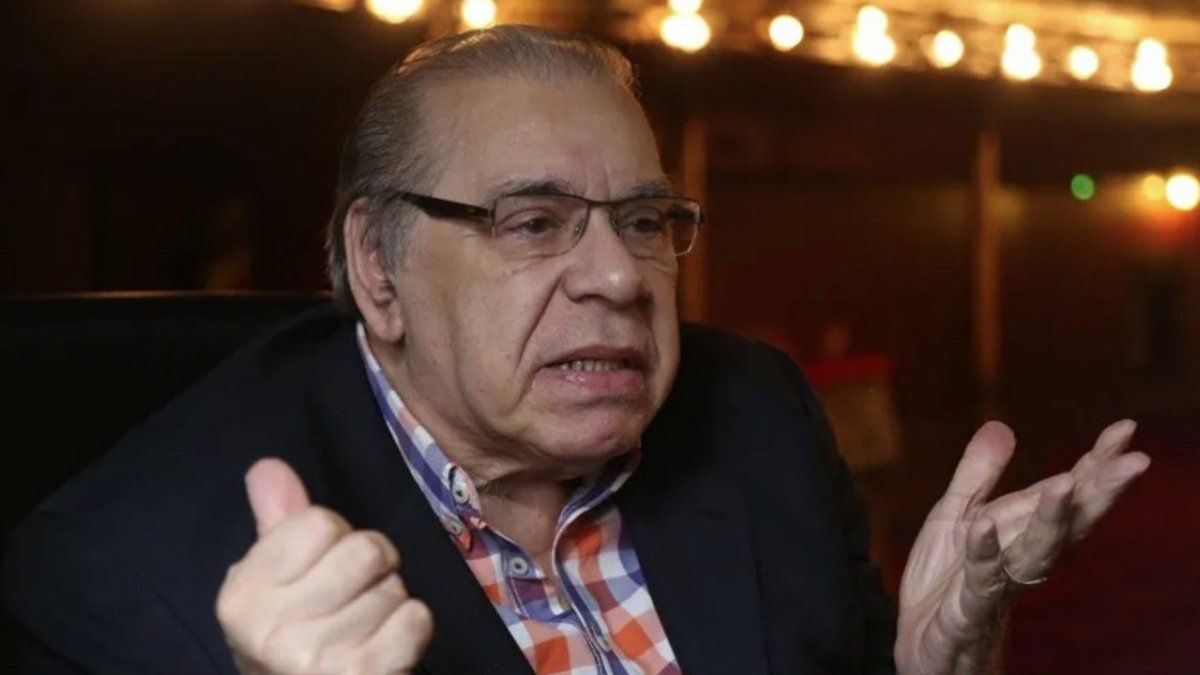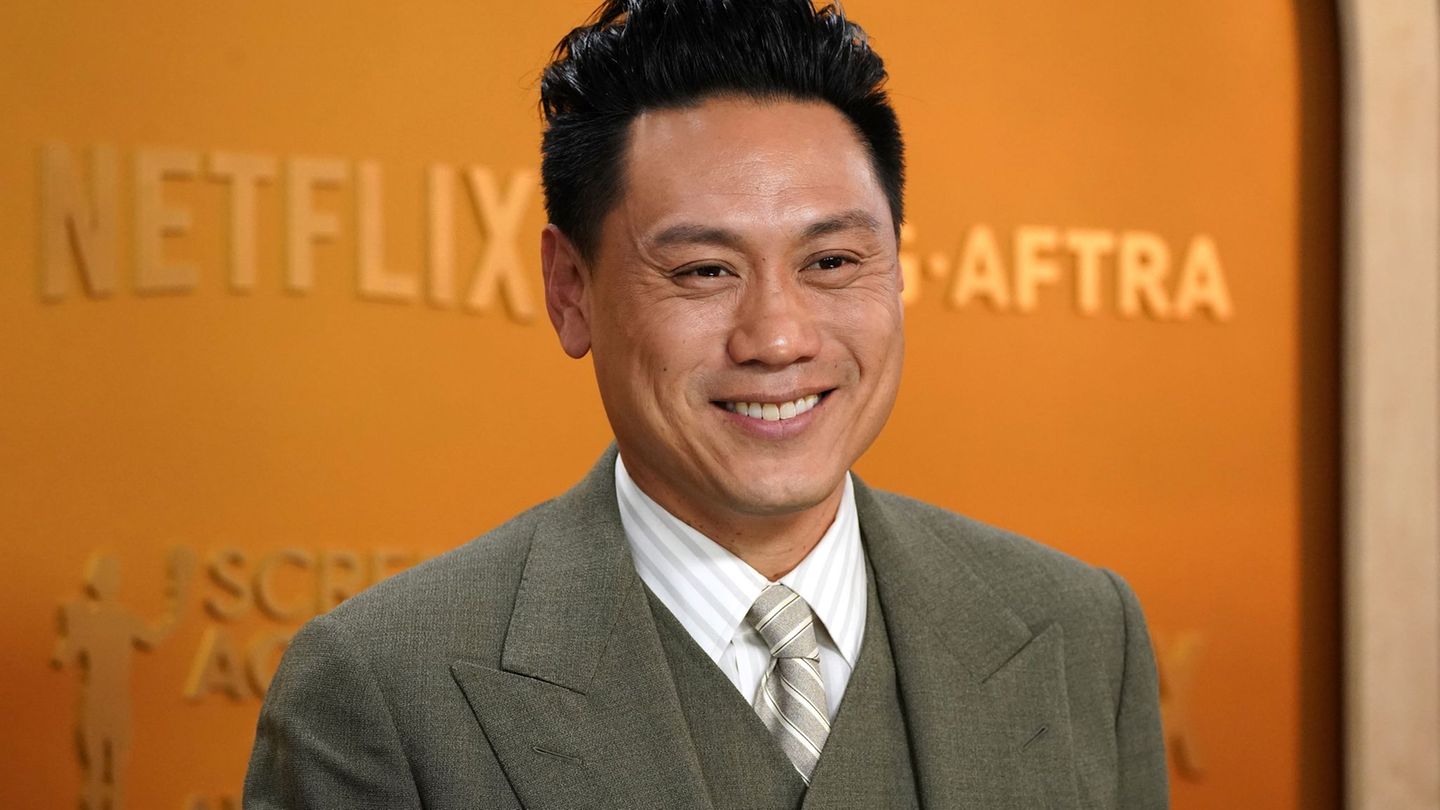Owner of a personal and versatile style dominated by a poignant humor that he unfolded at unusual verbal speed, Pinti successfully spent time in the fields of television, radio, theater, cinema, literature -as he wrote 13 books since 1990- and even the music when recording “Radio Pinti” (1991) together with Charly García (who considered him the greatest rapper in Argentina) and Pedro Aznar.
In theater, he dedicated himself to both children’s and adult works from writing, directing and acting, and his humorous café-concert monologues, in many cases reflective of current politics, made him one of the pioneers of the local theater scene. which would later be labeled as stand-up comedy in the country.
From his acid and foul-mouthed style, the humorist was able to build theatrical successes such as “Historias Recollects” I and II (1973 to 1975 and 1978 to 1979), “El show de Enrique Pinti” (1980), “Vote Pinti” (1983 ), “Salsa criolla” (which since 1985 was a record in the Spanish-speaking theater, with 3,000 performances, two million viewers and prestigious awards to its credit), “Pinti and apart” (1992), “The hell of Pinti ” (1997), “Pericon.com.ar” (2000)“National Candombe” (2002 to 2004) and “Before I Forget” (2010).
Pinti had a very successful collaboration with his colleague Antonio Gasalla between 1973 and 1986, a period in which he co-wrote all his friend’s shows and produced nine works with which they obtained theatrical records for several seasons at the Maipo and the Teatro Liceo.
In addition, the playwright worked on several adaptations of foreign works such as “Chicago” for Nélida Lobato, “Filomena Marturano”, “I love my wife” and “The crazy Addams”.
He also adapted the songs from Young Frankenstein, a play starring Guillermo Francella, and worked on the adaptation and as an actor in musical comedies such as “Hairspray”, “The Producers” and “Anything Goes”.
From the ages of 19 to 30, Pinti trained and worked at the Nuevo Teatro, an independent company created in 1949 by Alejandra Boero and Pedro Asquini, where he acted in plays and wrote and directed children’s musical comedies.
After acting in the film “El kidnapper” (1958), directed by Leopoldo Torre Nilsson and starring Leonardo Favio, in 1969 he began writing scripts for programs such as “La Botica del Ángel”, hosted by Eduardo Bergara Leumann, “Casino” and “La luna de Canela”, in addition to writing a version of “Don Segundo Sombra”.
Pinti also participated in graphics in the 1970s, writing the comic strip “The Watchmaker Monkey”, drawn by Daniel Branca and published by Billiken magazine.
Since 1973, he dedicated himself with more specialization to one-person shows and ventured into the café concert genre with his show “Historias Recolectas” at the Teatro Latino de San Telmo, which lasted until 1975.
In 1976, he made his debut at El Maipo de gala under the direction of Gerardo Sofovichbeside Osvaldo Pacheco, Carmen Barbieri, Thelma Stefani, Tristán, Alberto Irízar, and a year later he acted in “The humor of Niní Marshall”.
Under the direction of Antonio Gasallapremiered in 1982 “Pan and Circus”, in which Pinti played historical characters such as Nero or Queen Elizabeth, a work for which he was invited to the Latin American Theater Festival in New York and was awarded for that show.
“Salsa Criolla”, perhaps his most recognized, award-winning and blockbuster work, premiered in 1984 at the Liceo Theater and reviewed Argentina’s history from the discovery of America to the present day in a period musical format.
In cinema, the actor had secondary roles in “Sentimental” (1981) and in the remembered “Esperando la carroza” (1985) by Alejandro Doria, in which he played an alcoholic named Felipe.
In the 90’s he was also with Victor Laplace and Federico Luppi in “Flop” (1990) and together with Ricardo Darín in “Lost by Lost” (1993), a role that earned him awards at the Cartagena and Havana festivals and a Silver Condor.
In 1992 he premiered his own television series: “Pinti and the Penguins”, produced by Carlos Rottemberg and Daniel Tinayre, and in 1997 he toured presenting his best monologues.
Among his appearances as a guest columnist, Pinti collaborated in Clarín, La Nación and Noticias and in the field of radio he was in Miter in “Hoy por hoy” with Néstor Ibarra and in Continental in “Magdalena very early”, collaborations that gave him two Martín Iron in 2003 and 2007.
In turn, Pinti received two more Martín Fierro in 2009 and 2012 for the best educational cultural program, when he dedicated himself to making programs about movies: “Pinti and the cinema” for Public TV and “Luz, camera, Pinti” for Todo Noticias .
In terms of awards, the experienced artist also received the platinum Konex Award in 1991 for his solo performance and for best musical actor in 2001, and in 2006 he received the Golden Star of the Sea for comedy lead.
In 2015, thirty years after its presentation, “Salsa criolla” was re-premiered at the Liceo Theater and had a national tour that closed with presentations in Montevideo, Uruguay.
At the age of 79, “Al fondo a la right” debuted in 2019 and was the comedian’s last show, a solo show mixed with musical numbers from other shows of his own that he had to suspend due to a health crisis.
During the pandemic and quarantine, Pinti presented in August a show from his home via streaming with the journalist Marcelo Polino: “Pinti and Polino to the bone”, which had two performances and a good amount of public connected through the internet.
Source: Ambito
David William is a talented author who has made a name for himself in the world of writing. He is a professional author who writes on a wide range of topics, from general interest to opinion news. David is currently working as a writer at 24 hours worlds where he brings his unique perspective and in-depth research to his articles, making them both informative and engaging.




